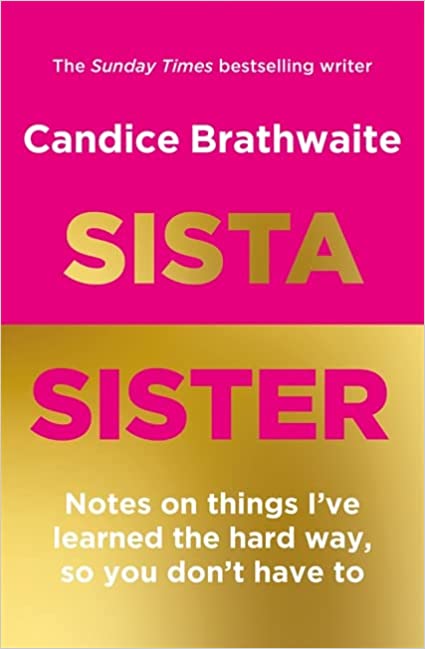The Observer
Sista Sister — Candice Brathwaite


In Sista Sister, Candice Brathwaite, author of I Am Not Your Baby Mother, reflects on her past mistakes in friendships, finances and family in an attempt to make the road less rocky for other black women. While she bravely touches on sex work and drugs, Sista Sister focuses on “universal” topics such as social media, dating and self-love, echoing the kind of discourses you might find on group chats. Each chapter ends with bullet points – “think before you tweet” and “not everyone is a bredrin” are just a few of the sentiments she wishes she had known as a youngster.
The first lesson is on hair and the euphoria and suffering that Brathwaite experiences in the pursuit of beauty – from getting her hair braided and feeling like Lauryn Hill in Sister Act 2 to chemically straightening her hair so much it burnt her scalp. Brathwaite now sports a shaved head, not easily achieved – she visited several barbers, but was turned away because they didn’t want to be responsible for taxing her femininity. “Wha happen? Yuh turn lesbian,” one of them says, but it’s her father’s remark that cuts the deepest: “Good luck trying to find a fella with a look like that,” he says.
Beauty standards are addressed again in a section on colourism. She discusses being persuaded to use bleaching products and being the “ugly friend” ranked last on lists, behind her lighter-skinned peers, by teenage boys. These memories bury themselves deep into her spirit; later, when Brathwaite has a daughter, she watches her closely for two years, afraid she might become as dark as her. She refers to a moment when she thought – mistakenly, it later transpires – that a lighter-skinned woman had pipped her to a job. “I wanted to unzip myself, shuffle out of my skin, a bit like a snake, and leave behind this torturous dark overcoat.” Her relapse into self-hate is distressing to read.
A piece on “manifestation” (a pseudo-scientific self-help tactic) reads like a sponsored post for The Secret, Rhonda Byrne’s 2006 self-help book about the law of attraction; the idea that positive or negative thoughts influence future events. “I was gobsmacked by how, all of a sudden, the things I thought were proper hurdles just didn’t seem to be blockers for me. I always got the job,” she writes. There is power in positive thinking, but with black youth unemployment at the same rate as it was during the 80s riots, there’s something a little uncomfortable about suggesting to sistas that their thoughts are responsible for their conditions, while glossing over capitalism and structural bias.
Brathwaite’s strongest writing is on grief. “For years, I learnt how to apply my makeup without making actual eye contact with myself. With him,” she writes about the death of her beloved father, who died suddenly after suffering from severe flu when the author was in her early 20s. Years later, Brathwaite has a conversation with her husband after speaking to a therapist. “I can’t be sure if my dad loved me,” she confesses. It’s hard to condense your thoughts on losing a loved one into a listicle, but it’s Brathwaite’s non-linear thinking that makes her ruminations powerfully haunting.